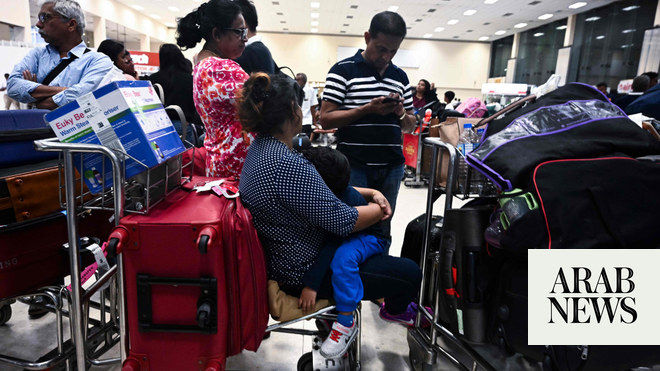
The UN World Food Program has estimated that more than 345 million people worldwide are suffering from or are at risk of acute food insecurity — a number that has doubled since 2019. However, while the UN has acted to provide support in Asia, Africa and Latin America, the rising cost of living is also hitting those in the developed world hard, no less so than in the UK, which is witnessing a sharp decline in living standards.
Britain is the world’s sixth-largest economy and a G7 industrialized power that has sought to perpetuate the postwar welfare state. However, its economy has entered what the Bank of England has warned is likely to be the longest recession and sharpest drop in living standards on record. This crisis is being driven by rocketing energy prices, stagnant wages and the sharpest rise in food costs in a generation. Amid a wider context of three prime ministers in the last six months, nationwide strikes and a bleak economic outlook for the coming year, it is little surprise that ordinary people are suffering.
Having ignored the growing impact of high food prices, the UK now has an acute hunger problem. One in four households with children experienced food insecurity in September 2022, affecting 4 million children. One poll from last October showed that one in seven people across the UK (14 percent) are skipping meals or going without food because they cannot afford the essentials. With millions being pushed below the breadline as food prices soar, charities have had to bridge the gap, with a staggering 1.3 million people seeking meals from the 2,000 food banks that have opened across the country.
Though the levels of hunger are not on a par with the developing world, even the families that are able to buy food can often only afford goods that are unhealthy and lacking in nutrition, increasing the scale of food insecurity and malnutrition that is already concerning. Though the UK only imports about 42 percent of its food, local produce is under increasing strain. Just last month, the National Farmers’ Union warned that the UK is “sleepwalking” into a major food supply crisis in the months ahead, with basics such as tomatoes and cucumbers facing shortages due to them being energy-intensive crops. The increasing price of energy and the knock-on effect on food has also led the Institute of Grocery Distribution to most recently warn of up to 19 percent food price inflation in the first quarter of this year.
Given that lower-income households spend a larger proportion of their income on food, it is little surprise they have been left so exposed.
Zaid M Belbagi
Such stresses have been felt most acutely by the vulnerable, especially children. The latest data is stark, with almost one in three children in the UK living in poverty (31 percent). This figure reaches almost 50 percent among children in single-parent homes. Though the rate of child poverty improved slightly in response to government support during the pandemic, rising housing costs, including rent, water rates, mortgage interest payments, buildings insurance payments, ground rent and services charges, coupled with the biggest food price rise in 40 years, has severely impacted child poverty. The reality for 25 percent of pupils on free school meals is that their lunches are often the only hot food they are guaranteed to eat in a day. So reliant are the most disadvantaged on these meals that families can sometimes be pushed into crisis during the school holidays because they cannot afford to pay for the food their children usually receive for free during term-time.
Given that lower-income households spend a larger proportion of their income on food, it is little surprise they have been left so exposed to these shocks. Amid an increasingly patchy public health service, which in recent weeks has seen 40-hour waiting times and patients dying in ambulances owing to hospitals being full, the Royal College of Pediatrics and Child Health warned last week that dental issues have become the most common cause of hospital admissions among children in the UK. Faced with rising costs, many families simply cannot afford toothbrushes and toothpaste or are relying on sugary foods to satiate their hungry children.
Such concerns have also led to the spread of illnesses that were thought to have been consigned to history. In October, for example, the government warned that cases of scurvy had more than doubled in the UK. With average house prices the most unaffordable they have been since 1899, the impact on the health of children is concerning, with more than 120,000 of them effectively homeless and living in temporary accommodation last year.
Food shortages and high prices are causing pain across the world — a situation exacerbated by the war in Ukraine. Though food prices last year already climbed to their highest levels in more than a decade because of supply chain disruptions, the blockade of Ukrainian ports and restrictions on Russia’s imports, global hunger is likely to get worse. Within this context, the UK government must do more to help struggling families. Though wage rises have been promised in April, the vulnerable require support urgently. The current circumstances are only increasing the divide between those who are disadvantaged and those who are not. The physical and psychological impacts of these circumstances are immeasurable.
• Zaid M. Belbagi is a political commentator and an adviser to private clients between London and the GCC. Twitter: @Moulay_Zaid












